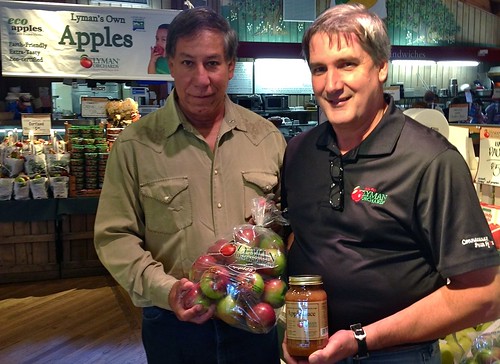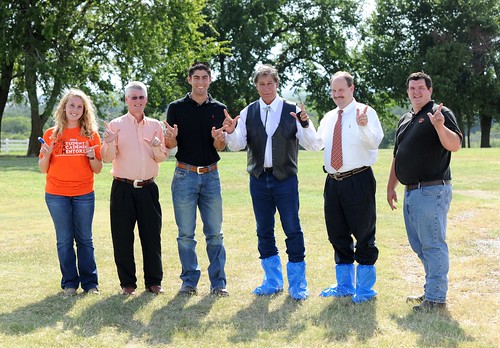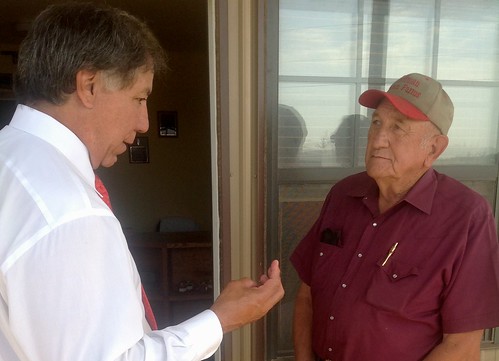
A life of farming—whether you grow up in it or are called to it later in life—takes a special kind of commitment and sense of responsibility. The reward is just as unique and appeals only to a handful of people who are willing to literally roll up their sleeves and work hard at a physically- and mentally-challenging job every day of the year. To me, there’s just something special about a profession where the fruits of your labor provide one of life’s most essential elements–food.
But that’s not where their contributions stop. Our nation’s farmers and ranchers strengthen our economy, with nearly one out of 12 jobs in the U.S. coming from agriculture.
Over the last year, I had the opportunity to visit and speak to farmers and ranchers across the country. During these visits, I get a chance to see first-hand how connected they are to their communities and the differences they make for the folks that live and work with them. And I also get to answer their questions directly, to hear the challenges they face and the help they could use. Inevitably, conversation turns to the Food, Farm, and Jobs Bill and what that legislation would mean to each of the farmers, ranchers, businesses and schools that depend on it.
For places like Lyman Orchards—an eighth-generation family farm that offers a remarkable boost to the economy of its small Connecticut town—the Farm Bill means long-term stability and continued support for family farms. The orchard has evolved over the years from a production-only farm when it opened in the 1800’s to a thriving blend of traditional orchard and agri-tourism that draws more than 250,000 visitors a year.
On average, 25% of farms rely on local and regional sales to make their businesses successful. A new Farm Bill will continue to support our local and regional foods systems, helping expand farmers markets and other sales opportunities through grants like the Agricultural Marketing Service (AMS) Farmers Market Promotion Program.

While in Oklahoma, I visited Oklahoma State University (OSU), meeting with their extension office staff and faculty, as well as the folks from the local USDA offices and the state Department of Agriculture. I was able to see first-hand the work they do to improve agricultural methods and shape the next generation of American farmers. A new Farm Bill would enable land-grant universities like OSU to continue cutting-edge research that addresses issues such as animal and plant health, food safety, and water quality. A commitment to research and development is key to helping our nation’s farmers and ranchers increase the quality, safety and production of American food.
For 51 years the Hoffman Pecan Farms in Oklahoma has served the local community pecans and pecan products produced from its 1,000-tree farm. But, with recent droughts, nearly ten percent of the farm’s trees died. A new Food, Farm, and Jobs Bill would help ensure that there is an adequate safety net for farms and ranches affected by natural disasters—putting them back on the path to survival and hopefully another 50 years of success.
Throughout my years at USDA and my experiences at the state level working with farms in New Mexico, I’ve witnessed the continued growth and success of American agriculture, and I’ve seen first-hand the triumphs and the challenges of the individuals who have answered the call, making their livelihoods from growing and producing the food we eat. They deserve a new Farm Bill so they can continue their great work, and USDA is committed to supporting them as they feed people all over the world and create much-needed jobs within our country.

